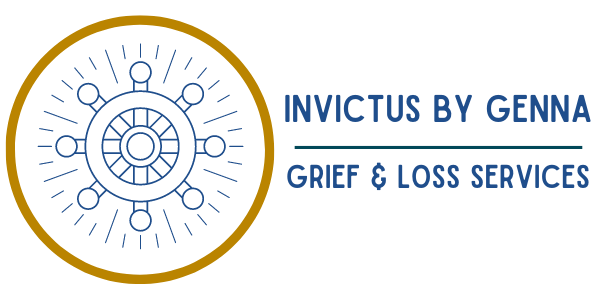The Grief Support Experience with Genna
- Talk one-on-one either virtually with Genna via the HIPPA-compliant telehealth platform or in person with Genna about your unique grief.
- Typical Session Length: 1 hour.
Session length can be negotiated if you desire a shorter or longer session. Session frequency can be once a week, twice a month, once a month, or any other frequency you’d like to discuss. In-person sessions might require more time, especially if one or both need to travel (travel fee may apply). - Cost:
Genna has a committment to affordable and accessible grief support. These services are not covered by insurance. A selection of pay-as-you-go payment options is available. Limited sliding scale and pro bono options are available. Contact Genna for more information. - Set goals for grief processing and engage in agreed-upon activities like art, writing, and breathing to process and explore your grief.
Statement of Inclusivity
Genna Reeves is committed to cultural humility when serving in multicultural communities and with persons of color. She honors all individuals and their families, whether by birth or choice, of all ages, abilities, races, ethnicities, nations of birth, religions or spirituality, sexual orientation, gender identity, or gender expression. All are respected and all are welcome. She has a Ph.D. in cross-cultural material culture, has completed Safe Space Training, leads both in-person and virtual LGBTQ+ grief support groups, and consistently looks for opportunities to learn more. Please let Genna know if you have unique concerns or needs based on culture and/or identity.

Difference Between Clinical and Peer Grief Support
Clinical grief support involves talking to a professionally licensed mental health professional (also known as a therapist, counselor, or psychologist) who is trained to help with grief and underlying mental/emotional issues (e.g., depression, bipolar disorder, etc.). Some therapists specialize in grief, while others take a more generalized approach or have other specialties (marriage and family therapy, etc.). They’re also a potentially good resource for people who are having a tough time with what is known as “acute grief” which makes it difficult to maintain daily functioning and routines. Peer grief support involves talking to someone who has experienced grief themselves and is trained to help others who are going through a similar loss. They provide emotional support, compassion, and practical guidance to help people cope with their grief and engage in the healing process. It is possible to do both and benefit greatly; it isn’t required that you choose one or the other. It’s important to assess which option is best for you.

